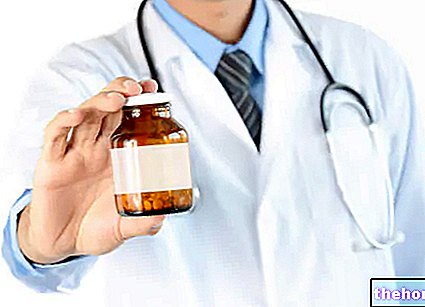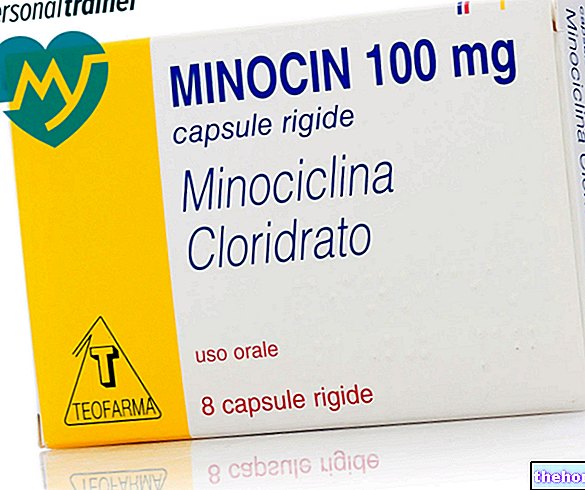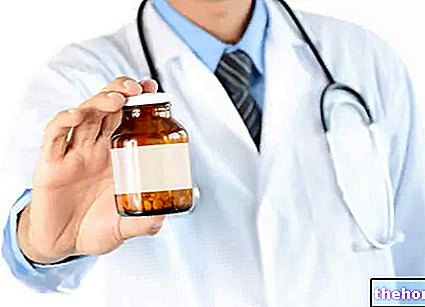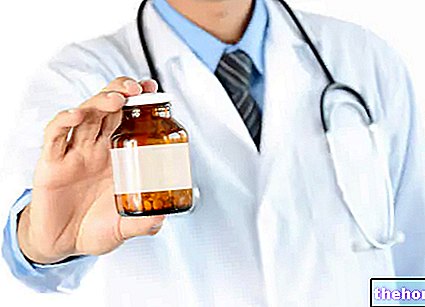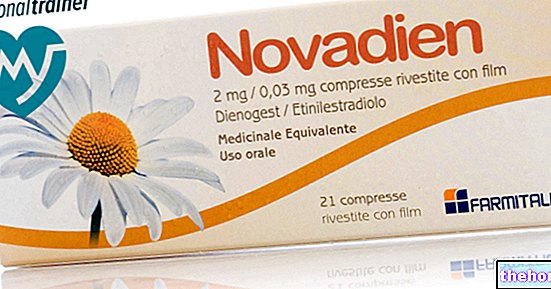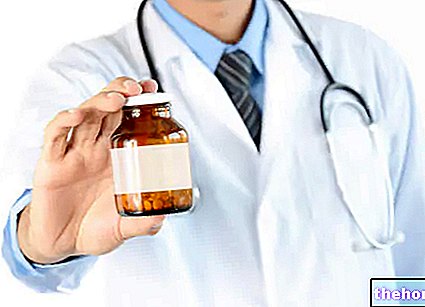Active ingredients: Colchicine
COLCHICINE LIRCA 1 mg tablets
Why is Colchicine lirca used? What is it for?
COLCHICINE LIRCA contains the active substance colchicine and belongs to a group of medicines called antigout which reduce inflammation due to uric acid deposits in the tissues.
Colchicine also reduces inflammation in diseases other than gout. This medicine is indicated:
- to treat attacks of gout (gouty arthritis), an "inflammation of the joints caused by" increased uric acid;
- for the prevention of recurrent gouty arthritis;
- to treat acute pericarditis, an inflammation of the membrane that surrounds the heart;
- for the treatment of recurrent pericarditis, after its first manifestation
Contraindications When Colchicine lirca should not be used
Do not take COLCHICINE LIRCA
- if you are allergic to colchicine or any of the other ingredients of this medicine (listed in section 6);
- if you suffer from severe problems with the heart, kidneys or stomach and intestines (heart, kidney, gastrointestinal failure);
- if you have kidney or liver damage and are being treated with medicines that increase colchicine levels in your blood (inhibitors of P-glycoprotein or CYP3A4 enzyme) such as:
- amiodarone, quinidine, used to treat heart rhythm problems;
- verapamil, used for high blood pressure;
- ketoconazole, for the treatment of skin infections caused by fungi;
- clarithromycin and erythromycin, used to treat infections due to bacteria (See sections "Warnings and precautions" and "Other medicines and COLCHICINE LIRCA");
- ticagrelor, used to thin the blood. (See section "Other medicines and COLCHICINE LIRCA").
- if you are pregnant or breast-feeding (See "Pregnancy and breast-feeding" section).
Precautions for use What you need to know before taking Colchicine lirca
Talk to your doctor or pharmacist before taking COLCHICINE LIRCA.
Take this medicine very carefully and tell your doctor in the following cases:
- if you are elderly;
- if you are debilitated, particularly if you have kidney, stomach and bowel disease or heart disease.
Tell your doctor if you experience symptoms such as:
- weakness;
- loss of appetite (anorexia);
- nausea;
- He retched;
- diarrhea.
In these cases, your doctor may reduce the dose of the medicine.
Interactions Which drugs or foods can modify the effect of Colchicine lirca
Tell your doctor or pharmacist if you are taking, have recently taken or might take any other medicines.
Use caution and tell your doctor if you are taking the following medicines, which increase colchicine levels in the blood:
- coumarin anticoagulants, such as warfarin, used to thin the blood;
- amiodarone, dronedarone, disopyramide, quinidine, used for problems with the rhythm of the heartbeat;
- phenytoin, valproate, carbamazepine, phenobarbital, used for the treatment of epilepsy;
- clarithromycin, telithromycin, erythromycin, used for infections due to bacteria;
- astemizole, terfenadine, methylprednisolone, for the treatment of allergies;
- ticagrelar, used together with acetylsalicylic acid, to make the blood more fluid;
- rifabutipine, rifapentine, to treat some infections;
- theophylline, for the treatment of asthma;
- alprazolam, midazolam, triazolam, used for anxiety;
- carbamazepine, pimozide, for the treatment of anxiety and seizures;
- cisapride, used for stomach problems (gastric motility disorders);
- cyclosporine, used to reduce the immune response following organ transplantation
- lovastatatin and simvastin, to reduce blood cholesterol levels (statins). In this case, tell your doctor immediately if you experience muscle pain and weakness;
- tacrolimus, used after an organ transplant;
- ritonavir, atazanavir, indinavir, saquinavir, efavirenz, nevirapine, zidovudine, for the treatment of AIDS;
- sildenafil, for male impotence (erectile problems);
- cilostazol, for difficulty walking (intermittent claudication);
- omeprazole, to treat digestive problems;
- midazolam, to induce sleep;
- ketoconazole, to treat infections caused by fungi;
- ergot alkaloids, to treat headaches (migraines);
- verapamil, to treat some heart beat problems and high blood pressure;
- vinblastine, used for some types of cancer.
Avoid taking both COLCHICINE LIRCA and clarithromycin, an antibiotic used for infections caused by bacteria, at the same time, especially if you are elderly and have kidney problems. Your doctor should closely monitor your health if you deem it necessary to take both. medicines (See sections "Do not take COLCHICINE LIRCA").
Warnings It is important to know that:
Pregnancy and breastfeeding
If you are pregnant or breast-feeding, think you may be pregnant or are planning to have a baby, ask your doctor or pharmacist for advice before taking this medicine.
Do not take COLCHICINE LIRCA if you are pregnant or breastfeeding.
Driving and using machines
This medicine does not affect the ability to drive or use machines.
COLCHICINE LIRCA contains lactose
This medicinal product contains lactose. If you have been told by your doctor that you have an intolerance to some sugars, contact your doctor before taking this medicinal product.
COLCHICINE LIRCA contains sucrose
If you have been told by your doctor that you have an intolerance to some sugars, contact your doctor before taking this medicinal product.
Dose, Method and Time of Administration How to use Colchicine lirca: Posology
Always take this medicine exactly as your doctor or pharmacist has told you. If in doubt, consult your doctor or pharmacist.
For severe gout attacks, the recommended dose is 3 tablets per day, for 3-4 days, one tablet on average before each meal.
In less severe cases the recommended dose is 1-2 tablets a day.
To avoid relapse, you will need to take small doses of colchicine over a long period of time as directed by your doctor.
In this case the recommended dose is:
- 2-3 tablets for the first 3-4 days;
- 2 tablets for 1 week;
- 1 tablet, every 2 days, for 3, 4, 5 months.
Take one tablet at a time with some water, preferably before each meal.
If you experience pain and mild swelling of the big toe, take 1-2 tablets in the evening before going to sleep, under the advice of your doctor. If necessary, you can repeat the intake the following day.
Treatment of acute pericarditis
The recommended dose is half a tablet twice a day for at least three months if you weigh more than 70 kg, or half a tablet once a day for at least three months if you weigh up to 70 kg or do not tolerate higher doses. However, your doctor will take into account your medical condition (how your kidneys and liver are working) for the dose.
Treatment of recurrent pericarditis
The recommended dose is half a tablet twice a day for at least six months if you weigh more than 70 kg, or half a tablet once a day for at least six months if you weigh up to 70 kg or do not tolerate higher doses. However, your doctor will take into account your medical condition (how your kidneys and liver are working) for the dose.
If you forget to take COLCHICINE LIRCA
If you forget to take a tablet, do not take a double dose to make up for a forgotten dose. If you have any further questions on the use of this medicine, ask your doctor or pharmacist.
Overdose What to do if you have taken too much Colchicine lirca
After taking too much of this medicine you may experience the following symptoms:
- pain in the abdomen;
- He retched;
- diarrhea, loss of water and salts in the body (water-saline depletion);
- increase and subsequently decrease in the number of white blood cells in the blood (leukocytosis, leukopenia);
- reduction in the number of platelets in the blood (thrombocytopenia);
- increased breathing rate (polypnea);
- hair loss (alopecia);
- death due to loss of heart and blood vessel function (cardiovascular collapse) or due to an "infection of the whole body" (septic shock).
If you have swallowed / taken too much of this medicine, contact your doctor or the nearest hospital immediately.
Side Effects What are the side effects of Colchicine lirca
Like all medicines, this medicine can cause side effects, although not everybody gets them. If any of these symptoms occur, stop taking COLCHICINE LIRCA immediately and contact your doctor or go to the nearest hospital emergency department.
The following side effects may occur:
Common (which may affect up to 1 in 10 people)
- nausea;
- He retched;
- diarrhea;
- pain in the abdomen (abdominal tenderness).
Uncommon (may affect up to 1 in 100 people)
- reduction in the number of white blood cells in the blood (leukopenia);
- hair loss (alopecia);
- prolonged contraction of muscles (myotonia);
- severe damage to your muscles (rhabdomyolysis), especially if you are taking medicines that lower cholesterol levels in the blood (See section "Other medicines and COLCHICINE LIRCA");
- weakness in the muscles.
Rare (may affect up to 1 in 1000 people)
- increase in the number of platelets in the blood (thrombocytosis);
- bleeding from the nose (epistaxis); - bone marrow diseases (aplastic or haemolytic anemia, pancytopenia, neutropenia, thrombocytopenia);
- skin irritations (urticaria, vesiculo-bullous rash, erythema);
- redness of the skin with bleeding (purpura);
- swelling of the skin and mucous membranes due to an accumulation of fluids (edema);
- fertility problems in humans (azoospermia, oligospermia).
Very rare (may affect up to 1 in 10,000 people)
- severe nerve disease (peripheral motor neuropathy).
Not known (the frequency of which cannot be estimated from the available data)
- severe diarrhea (profuse diarrhea);
- bleeding from the stomach or intestines (gastrointestinal haemorrhage);
- liver problems (hypertransaminasemia, liver damage) and kidney problems (kidney damage);
- skin irritations (rashes);
- bad absorption (reversible malabsorption) of vitamin B12 and alteration of the intestinal mucosa (ileal).
Reporting of side effects
If you get any side effects, talk to your doctor or pharmacist. This includes any possible side effects not listed in this leaflet. You can also report side effects directly via the national reporting system at www.agenziafarmaco.it/it/responsabili. By reporting side effects you can help provide more information on the safety of this medicine.
Expiry and Retention
Keep this medicine out of the sight and reach of children.
Do not use this medicine after the expiry date which is stated on the carton after "EXP".
The expiry date refers to the last day of that month.
This medicine does not require any special storage conditions.
Do not use COLCHICINE LIRCA if you notice visible signs of deterioration.
Do not throw any medicines via wastewater or household waste. Ask your pharmacist how to throw away medicines you no longer use. This will help protect the environment.
Other information
What COLCHICINE LIRCA 1 mg tablets contains
- The active ingredient is colchicine. One tablet contains 1 mg of colchicine.
- The other ingredients are: lactose, gum arabic, sucrose, magnesium stearate.
What COLCHICINE LIRCA looks like and contents of the pack
1 mg divisible tablet: pack of 60 tablets in 3 PVC / Al blisters.
Source Package Leaflet: AIFA (Italian Medicines Agency). Content published in January 2016. The information present may not be up-to-date.
To have access to the most up-to-date version, it is advisable to access the AIFA (Italian Medicines Agency) website. Disclaimer and useful information.
01.0 NAME OF THE MEDICINAL PRODUCT
COLCHICINE LIRCA 1 MG TABLETS
02.0 QUALITATIVE AND QUANTITATIVE COMPOSITION
One tablet contains:
Active principle:
colchicine 1 mg.
For the full list of excipients, see section 6.1
03.0 PHARMACEUTICAL FORM
Tablets
04.0 CLINICAL INFORMATION
04.1 Therapeutic indications
Acute attack of gouty arthritis. Prophylactic treatment of recurrent gouty arthritis.
Treatment of acute pericarditis and recurrent pericarditis.
04.2 Posology and method of administration
Dosage
Gouty arthritis
Unless otherwise prescribed by a doctor, in the acute attack the usual dose is three tablets a day for three to four days, one tablet on average before each meal.
To avoid relapses it is necessary to keep the patient under the influence of small doses for a long time: it will therefore be prescribed for the first three to four days from 2 to 3 tablets. For a week, two tablets, then for three, four, five months 1 tablet every two days.
In subacute manifestations 1 to 2 tablets per day.
As a preventative when there is pain and slight swelling of the big toe, 1 to 2 tablets in the evening before going to bed (repeat the following day if necessary).
Acute and recurrent pericarditis
0.5 mg twice daily in adult patients with body weight> 70 kg or 0.5 mg once daily in adult patients with body weight ≤ 70 kg or in intolerant patients at higher doses, for at least six months in recurrent pericarditis and at least three months in acute pericarditis.
Method of administration
Oral use. The tablet can be swallowed whole or broken in half along the score line to obtain the single dose of 0.5 mg.
The recommended dose in patients may vary based on renal and hepatic function.
One tablet on average before each meal.
04.3 Contraindications
Hypersensitivity to the active substance or to any of the excipients listed in section 6.1.
Colchicine should not be given to patients suffering from severe heart, renal and gastrointestinal failure.
Colchicine is contraindicated in patients with renal or hepatic impairment who are taking inhibitors of the P-glycoprotein or CYP3A4 enzyme (see section 4.5).
Colchicine should not be administered during pregnancy and lactation.
04.4 Special warnings and appropriate precautions for use
Colchicine should be administered with great caution to elderly people and debilitated patients especially those with kidney, gastrointestinal and heart disease.
If weakness, anorexia, nausea, vomiting or diarrhea occur, the dosage should be reduced.
Clarithromycin:
There have been post-marketing reports of colchicine toxicity with the concomitant use of colchicine and clarithromycin, especially in elderly patients, some of which occurred in patients with renal insufficiency. Deaths have been reported in some of these patients (see section 4.5) If colchicine is required to be administered concomitantly with clarithromycin, the patient should be closely monitored for the development of clinical symptoms of colchicine toxicity.
Important information about some of the excipients
COLCHICINE LIRCA contains lactose: patients with rare hereditary problems of galactose intolerance, the Lapp lactase deficiency, or glucose-galactose malabsorption should not take this medicine.
COLCHICINE LIRCA contains sucrose: patients with rare hereditary problems of fructose intolerance, glucose-galactose malabsorption, or sucrase isomaltase insufficiency, should not take this medicine.
04.5 Interactions with other medicinal products and other forms of interaction
There are no known incompatibilities of taking the drug with common preparations used in the treatment of gout, nor interactions with laboratory tests
Co-administration of colchicine and cytochrome P450 3A4 (CYP3A4) or P-glycoprotein (P-gp) inhibitors increases the potential toxicity of colchicine.
The main drugs or classes of drugs known or believed to be metabolised by the same CYP3A isozyme are: alprazolam, oral anticoagulants (e.g. warfarin), astemizole, carbamazepine, cilostazol, cisapride, clarithromycin, telithromycin, cyclosporine, disopyramide, segal alkaloids , methylprednisolone, midazolam, omeprazole, pimozide, quinidine, rifabutin, rifapentine sildenafil, simvastatin, tacrolimus, terfenadine, triazolam, vinblastine, ritonavir, atazanavir, indinaovvir, saquinavir, efapirenz, nevidovir, saquinavir, efapirenz. Other drugs which interact with a similar mechanism through other isozymes within the cytochrome P450 system are phenytoin, theophylline and valproate and phenobarbital.
Co-administration with P-gp inhibitors (such as amiodarone, verapamil, quinidine, ketoconazole, dronedarone, clarithromycin and ticagrelor) is likely to result in increased plasma concentrations of colchicine.
- P-glycoprotein inhibitors or strong CYP3A4 inhibitors: colchicine is contraindicated in patients with renal or hepatic insufficiency who are taking a P-glycoprotein inhibitor or a strong CYP3A4 inhibitor
- Macrolides, (e.g. clarithromycin and erythromycin) as inhibitors of CYP3A4, should not be used for the treatment of patients with renal or hepatic insufficiency taking colchicine. - In patients with normal renal or hepatic function, a reduction in colchicine dosage or an interruption of colchicine is recommended if treatment with a P-glycoprotein or strong CYP3A4 inhibitor is required (see section 4.4, Special warnings and precautions for use. ).
- Statins: Rhabdomyolysis has been reported in patients undergoing co-treatment with statins. Patients should be advised to report muscle pain or weakness.
04.6 Pregnancy and breastfeeding
Pregnancy
Do not use the drug
Feeding time
Do not use the drug
04.7 Effects on ability to drive and use machines
COLCHICINE LIRCA does not affect the ability to drive or use machines.
04.8 Undesirable effects
At high doses it can cause profuse diarrhea, gastrointestinal bleeding, skin rashes and kidney and liver damage. However, it is necessary to administer the drug at full dosage to obtain an adequate therapeutic effect. Therefore in case of diarrhea an antidiarrheal drug can be administered.
Colchicine can induce reversible malabsorption of Vit. B12 by altering the function of the ileal mucosa.
The table below summarizes the major undesirable effects of colchicine according to MedDRA code (version 16.1): Very common (≥1 / 10), Common (≥1 / 100,
Reporting of suspected adverse reactions
Reporting of suspected adverse reactions occurring after authorization of the medicinal product is important as it allows continuous monitoring of the benefit / risk balance of the medicinal product. Healthcare professionals are asked to report any suspected adverse reactions via the national reporting system. "address www.agenziafarmaco.gov.it/it/responsabili
04.9 Overdose
Acute intoxication from colchicine overdose (mortality rate is 30%) is a rare occurrence and is voluntary.
The toxic dose likely to produce lethal effects is about 10 mg. The latency period between taking the drug and the onset of clinical symptoms varies from one to eight hours; on average it is three hours.
The clinical manifestations due to acute colchicine poisoning are the following:
Digestive disorders: widespread abdominal pain, vomiting and diarrhea with consequent water-saline depletion.
Hematological changes: initially there is leukocytosis; later leukopenia and thrombocytopenia. Polypnea is frequently observed as well as "alopecia on the tenth day. The prognosis is reserved. Death generally occurs on the second or third day due to cardiovascular collapse or septic shock.
Therapy: it is essential to arrange for the patient to be admitted to an intensive care unit, where gastric lavage and duodenal aspiration can be performed.
The therapy is symptomatic and involves the correction of the water-saline imbalance and antibiotic therapy.
05.0 PHARMACOLOGICAL PROPERTIES
05.1 Pharmacodynamic properties
Pharmacotherapeutic group: antigout - antigout - preparations with no effect on uric acid metabolism.
ATC code: M04AC.
The active ingredient of the COLCHICINE LIRCA specialty is colchicine, an alkaloid extracted from the seeds of the autumn colchicum, a herbaceous plant belonging to the Liliacee family.
Since ancient times, the diuretic, analgesic and anti-inflammatory properties of colchicum extract have been known, which was therefore used as a remedy for rheumatism, arthritis and above all as an antigout.
Although the mechanism of the antigout effect of colchicine is not completely known, the drug appears to reduce the inflammatory response to the deposition of monosodium urate crystals in the tissues, thanks to its ability to inhibit the metabolism, motility and chemotaxis of polymorphonucleated and / or other leukocyte functions Colchicine also directly interferes with the deposition of monosodium urate by decreasing the production of lactic acid by polymorphonuclear cells and indirectly reducing phagocytosis.
Colchicine then inhibits cell division as it interferes with the formation of the mitotic spindle at the metaphase level; this was observed on granulocytes.
These actions were detected both in cell cultures and in cells of patients treated with colchicine.
Colchicine has potential toxicity that is dose dependent; therefore, colchicin therapy must be adjusted on the basis of individual tolerance, which is quite varied, taking gastro-intestinal disorders and in particular diarrhea as an index of the first toxic signs.
05.2 Pharmacokinetic properties
Colchicine is rapidly absorbed after oral administration and maximum concentrations occur in plasma over a time interval of 30 minutes to 2 hours.
Absorbed colchicine is partially transformed into oxycholicine, which electively accumulates in the kidney, from where it is excreted rather slowly. Therefore, in subjects suffering from renal insufficiency, there can be an accumulation of the drug and its metabolite. The t1 / 2 is 65 ± 15 minutes in the normal subject and the total clearance is 601 ± 155 ml / min. The volume of distribution is 49 ± 9 l.
Enterohepatic recycling occurs to a large extent and can lead to gastrointestinal adverse effects with higher dosages. Colchicine distributes to the kidney, liver, spleen, and intestinal tissues, and is concentrated primarily in the leukocytes. Colchicine can be found in leukocytes 10 days after administration. Colchicine is metabolized by the liver and other tissues. The distribution half-life in plasma is 3-5 minutes. The elimination half-life ranges from 1.7 to 20.9 hours in patients with normal renal function and increases in patients with renal insufficiency, therefore a dose reduction is recommended. . Colchicine and its metabolites are mainly excreted in the faeces, 10-20% are excreted unchanged in the urine.
Renal elimination may increase in patients with liver disease.
05.3 Preclinical safety data
The acute toxicity of colchicine is very high; the DL50 for i.v. are 1.6 and 4.13 mg / kg in rat and mouse respectively.
06.0 PHARMACEUTICAL INFORMATION
06.1 Excipients
Lactose, sucrose, gum arabic, magnesium stearate.
06.2 Incompatibility
Not relevant.
06.3 Period of validity
5 years
06.4 Special precautions for storage
This medicine does not require any special storage conditions
06.5 Nature of the immediate packaging and contents of the package
Box containing 3 PVC / aluminum blisters of 20 tablets each.
06.6 Instructions for use and handling
No special instructions.
Unused medicine and wastes derived from this medicine must be disposed of in accordance with local regulations.
07.0 MARKETING AUTHORIZATION HOLDER
ACARPIA Farmaceutici srl
via Vivaio, 17
20122 MILAN (ITALY)
08.0 MARKETING AUTHORIZATION NUMBER
AIC n. 009964038 1 mg tablets, 60 tablets, in 3 PVC / Al blisters
09.0 DATE OF FIRST AUTHORIZATION OR RENEWAL OF THE AUTHORIZATION
April 1955 / June 2005
10.0 DATE OF REVISION OF THE TEXT
13.04.2017

